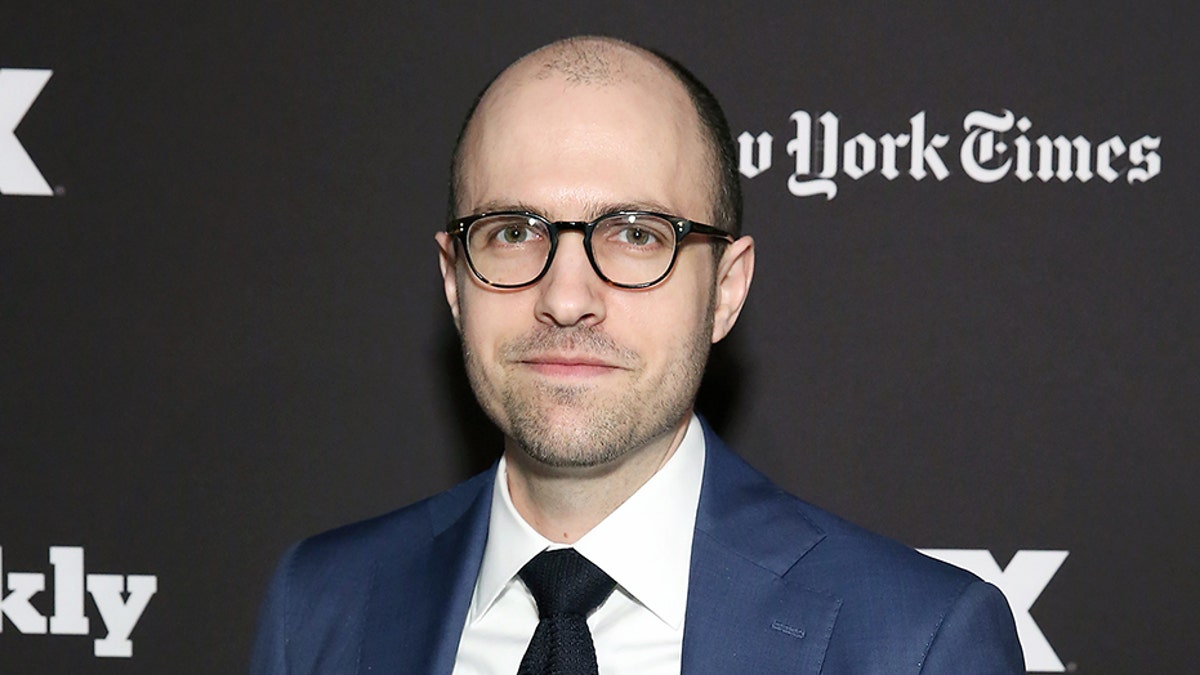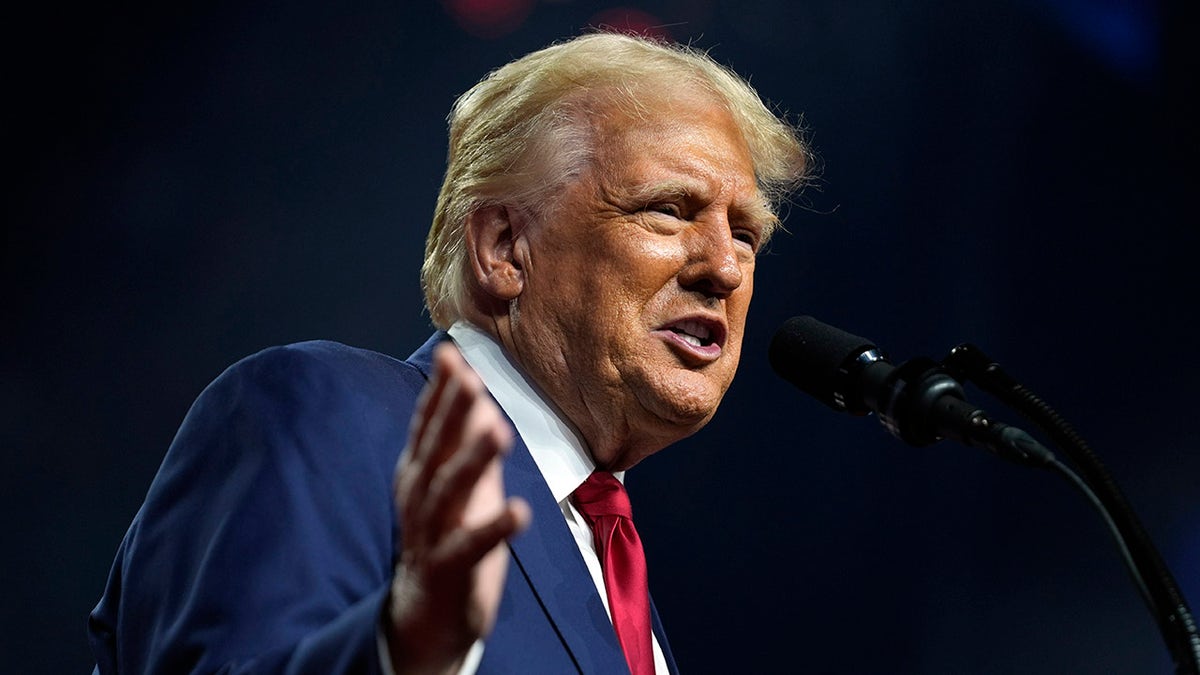WATCH LIVE: Trump pitches economic blueprint to voters with vision for America
The former president delivers a speech at the Economic Club of New York, introducing key new policy proposals of his White House campaign.
New York Times publisher A.G. Sulzberger warned that former President Trump may use authoritarian methods to undermine the press if he gets back into the White House.
In an opinion column published in rival paper The Washington Post on Thursday, Sulzberger detailed how authoritarian leaders throughout the globe have found ways to silence the media so there are less checks on their power. He then wondered if Trump might be inclined to adopt their methods when he returns to power.
"It’s not a crazy question. As they seek a return to the White House, former president Donald Trump and his allies have declared their intention to increase their attacks on a press he has long derided as ‘the enemy of the people,’" the publisher stated.
BILL MAHER MOCKS FLIP FLOPS FROM HARRIS AND WALZ IN CNN INTERVIEW: ‘JUST INSULTING MY INTELLIGENCE’

The New York Times publisher A.G. Sulzberger warned that former President Trump could adopt an authoritarian playbook to attack the press if he returns to the White House. ((Photo by Monica Schipper/Getty Images))
Sulzberger began by detailing the playbook that leaders like Hungarian Prime Minister Viktor Orbán have used to go about silencing their media critics.
He wrote, "After several years out of power, the former leader is returned to office on a populist platform. He blames the news media’s coverage of his previous government for costing him reelection. As he sees it, tolerating the independent press, with its focus on truth-telling and accountability, weakened his ability to steer public opinion. This time, he resolves not to make the same mistake."
Sulzberger went on, noting how such a leader would undermine the press in a democracy, saying they’d use "bureaucratic tools such as tax law, broadcast licensing and government contracting," all the while rewarding friendly outlets by "shoring them up with state advertising revenue, tax exemptions and other government subsidies."
CLICK HERE FOR MORE COVERAGE OF MEDIA AND CULTURE
"Within a few years, only pockets of independence remain in the country’s news media, freeing the leader from perhaps the most challenging obstacle to his increasingly authoritarian rule," the publisher said, adding that, "This is the short version of how Viktor Orban, the prime minister of Hungary, effectively dismantled the news media in his country."
He wrote that a "weakened press made it easier for him to keep secrets, to rewrite reality, to undermine political rivals, to act with impunity — and, ultimately, to consolidate unchecked power."
Sulzberger then predicted Trump would take up the same cause, stating, "By the end of his first term, Trump’s anti-press rhetoric — which contributed to a surge in anti-press sentiment in this country and around the world — had quietly shifted into anti-press action."

Sulzberger argued that since Trump is a fan of Hungarian Prime Minister Viktor Orban, he might be inspired to use the European leader's strategies to go after the press. (AP Photo/Evan Vucci)
The publisher pointed to Trump’s own fondness for Orban as more evidence he would commit to such a scheme.
"His efforts would likely be informed by his open admiration for the ruthlessly effective playbook of authoritarians such as Orban, whom Trump recently met with at Mar-a-Lago and praised as ‘a smart, strong, and compassionate leader,’" he wrote.
The author reminded readers that, as the Times publisher, he has committed his outlet not to casting "aside neutrality" and opposing Trump’s re-election. Still, he stated, "I feel compelled to speak out about threats to the free press, as my predecessors and I have done to leaders of both parties."
Later in the column, he argued that Trump has also helped give the world’s authoritarians the "encouragement" to attack the press.
"It has been only eight years since Donald Trump popularized the term ‘fake news’ as a cudgel to dismiss and attack journalism that challenged him," Sulzberger stated, adding, "That phrase, from the president of the United States, was all the encouragement many would-be authoritarians needed. In the following years, around 70 countries on six continents have enacted ‘fake news’ laws."
Elsewhere, the publisher mentioned that many U.S. presidents – both Democratic and Republican – have had contentious relationships with the press, though they still "consistently defended and expanded protections for journalists."
He said that Trump is the exception among U.S. leaders in 100 years in this regard, adding, "Over the past century in the United States, Trump stands out for his aggressive and sustained efforts to undermine the free press."






















